From a diamond-based, room temperature quantum computer to a unified programming language, here are eight quantum technologies of note.

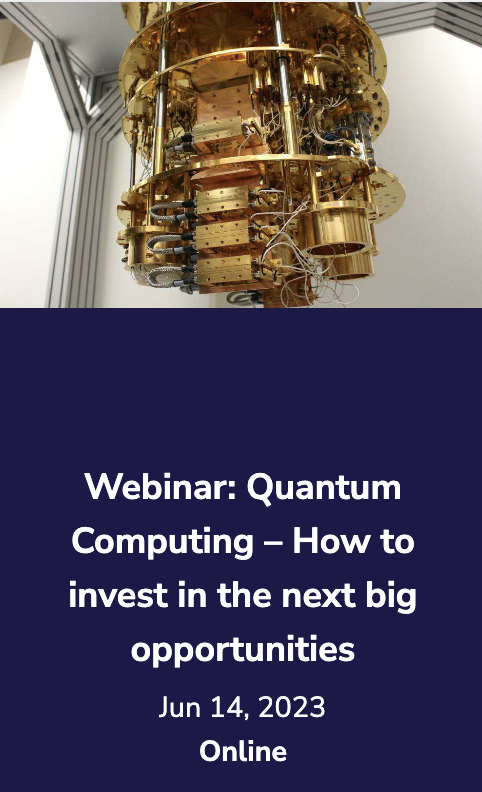
Sign up here
Although quantum computers have come a long way in only a few years and have become accessible to a wider group of users through the cloud — a long list of challenges remain: the machines are typically bulky, they need extremely low temperatures to operate and all of them are still prone to decoherence (in simple terms, this is when the environment interacts with qubits and causes them to alter their state, leading to a loss of information).
There are also challenges in programming quantum computers and connecting them to other systems. But a growing number of startups are emerging to solve these issues. Many of the larger quantum computing startups have already received large funding rounds and are fairly well known to investors.
But we are looking here at some of the newer startups that have been freshly formed or spun out of university labs. They may not be names you know yet, but are ones that quantum investors should keep an eye on.
Diraq
- Founded: 2022
- Funding to date: not disclosed
- Location: Australia

Diraq wants to build a billion qubits on a single chip, based on the same semiconductor fabrication technology (called CMOS) that’s used for computers today — making the approach, if it works, inherently scalable. So far, so ambitious. But Diraq has an important edge over its competitors: in 2020, its engineers discovered a previously unknown effect that lets them manipulate the quantum state of a single qubit using electric, rather than magnetic, fields. (Here’s the paper in Nature Technology.)
The fortuitous discovery means Diraq doesn’t need cobalt micro-magnets or antenna to control qubits – in other words, its technology is less bulky.
Diraq’s founder and chief executive is Andrew Dzurak, the Scientia professor in quantum engineering at University of New South Wales. In 2015, he was the lead on a project that created the world’s first quantum logic gate in silicon, showing that CMOS could indeed work as the basis for quantum computers.
Although Diraq itself was only formed in May 2022, it builds on two decades of research and is in fact a spinout of another UNSW spinout: Silicon Quantum Computing. It was backed by Allectus Capital at launch, though an amount was not disclosed.
Semiwise
- Founded: 2013
- Funding to date: $33,500
- Location: UK
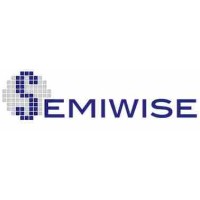
UK-based Semiwise’s current offering focuses on low power CMOS transistor level technology that’s ideally suited for applications like the internet of things and artificial intelligence.
You might wonder how that qualifies Semiwise for this list.
A major challenge with quantum computing today is that the qubits typically operate at cryogenic temperatures (colder than -153° Celsius). The control circuitry is made up of silicon chips that can only operate as low as -40° Celsius, so it has to be located away from qubits and connected with bulky and expensive cables, introducing latency and creating a barrier for scalability.
The company has been using its expertise in CMOS to develop cryogenic process development kits — meaning circuits that can operate at cryogenic temperatures could be manufactured by conventional foundries.
In fact, Semiwise was part of an Innovate UK-funded consortium, to the tune of £6.5m ($8m), launched in 2021 to do just that. University of Glasgow’s James Watt School of Engineering joined the spinout for that research. It unveiled first a first model in November 2022 and more earlier this month.
Algorithmiq
- Founded: 2020
- Funding to date: $4m
- Location: Finland

Algorithmiq is working on quantum algorithms to solve complex life science problems with three focus areas: molecular structure prediction, drug discovery and drug design.
Importantly, Algorithmiq does this on quantum computers that exist today and combines the technology with approaches like artificial intelligence and network medicine (the study of the interaction between biological components to understand the molecular pathways underlying disease pathogenesis). Aurora, the Finland-based company’s quantum chemistry platform, is hardware agnostic.
Algorithmiq’s impressive founding team is led by co-founder and CEO Sabrina Maniscalco, professor and chair of theoretical physics at University of Turku as well as adjunct professor at Aalto University.
Her fellow co-founders — chief scientific officer Guillermo García-Pérez, chief technology officer Matteo Rossi and lead researcher Boris Sokolov — were all researchers at Turku at some point. García-Pérez was also a postdoc at University of Helsinki, while Rossi gained his PhD from University of Milan.
Algorithmiq picked up $4m in seed funding in February 2022 from Tiger Global, K5 Global, Thames Trust, Dawn Capital, Foobar.vc, Arena Holdings, Keenan Rice and Jorma Ollila, who’s now the company’s chairman. A range of unnamed angel investors also took part.
Classiq
- Founded: 2020
- Funding to date: $63m
- Location: Israel

IBM is on track to build the first quantum computer with more than 1,000 qubits this year. That is a long way from the 27 qubits that its Falcon system offered in 2019. It also points to a future where quantum software can no longer be written at gate level.
Essentially, if there’s hundreds rather than just dozens of qubits, it’s impossible to manually program each one. The same thing happened with traditional computers as they became more complex: software written today is an abstraction significantly removed from the underlying machine code.
This is where Israel-based Classiq comes in. The startup has developed a quantum algorithm design platform that automatically creates optimised and hardware-aware circuits from high-level functional models. In other words, the platform runs through thousands of implementation options to generate a circuit that delivers the needed functionality within any given system constraint.
Classiq was founded in 2020 by CEO Nir Minerbi (a former team lead at Israeli’s military intelligence unit 8200), chief technology officer Yehuda Naveh (who teaches quantum computing at Technion) and chief product officer Amir Naveh.
While still a young company, the company has rapidly assembled an impressive roster of shareholders such as Hewlett Packard Pathfinder, Samsung NEXT and Sumitomo that have put in $63m of funding — making Classiq the best-funded startup on this list.
Horizon Quantum Computing
- Founded: 2018
- Funding to date: between $21m and $27m
- Location: Singapore

Singapore-based Horizon Quantum Computing wants to take things even further than Classiq, giving researchers the ability to create quantum algorithms without the need to understand how exactly a quantum computer works.
Its technology is ambitious but could prove transformational: it is developing a single unified language that can be compiled to run on either a traditional or a quantum computer.
The company was founded in 2018 by CEO Joe Fitzsimons, whose track record include co-inventing the universal blind quantum protocol that allows a client’s input, output and computation on a cloud-based quantum computer to remain private.
Fitzsimons had tenure at Singapore University of Technology and Design and served as a principal investigator at the country’s Centre for Quantum Technologies until 2019.
Horizon Quantum Computing’s series A round this past March brought in $18.1m from Tencent, Sequoia Capital India, SGInnovate, Pappas Capital and Expeditions Fund.
NGQ
- Founded: 2019
- Funding to date: none
- Location: US
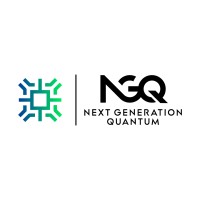
Next Generation Quantum (NGQ) may still be in stealth mode but it has a strong vision: it isn’t content building a single quantum computer and figuring out how it could scale that, it is developing technology to create clusters.
NGQ hopes to do that by coupling existing internet and data transfer telecoms lines with quantum encryption and computing hardware.
The spinout is currently working on a prototype of its device, with its founders having already gone through the entrepreneurial training of US National Science Foundation’s Innovation Corps.
Those two founders are CEO Shaina Raklyar, who also teaches general physics at CUNY New York City College of Technology, and chief technology officer German Kolmakov, an associate professor at the same university.
NGQ doesn’t appear to have raised any equity funding yet.
Aquark Technologies
- Founded: 2020
- Funding to date: more than $310,000
- Location: UK
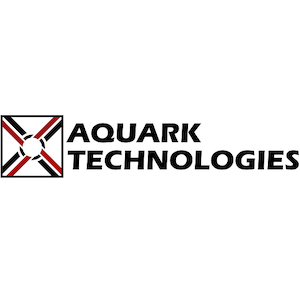
University of Southampton spinout Aquark Technologies is commercialising a core component of quantum computers, called cold atom system, that is the size of a matchbox — about a hundred times smaller than the bulky, complex and energy-intensive systems currently in use (you can see a video comparison of the two here).
The device, dubbed Aquark Cube, is plug-and-play and consists of an integrated atom chip designed to hold cold atoms in a vacuum cooled to absolute zero (−273.15° Celsius).
In the short term, Aquark Technologies is developing individual components to take advantage of the current market, but longer term the spinout has ambitions to design a cheap atomic clock, build a global navigation technology that doesn’t require a satellite connection (because being able to precisely measure time, acceleration, gravity and rotation, you can figure out where on earth you are) and help create home-sized quantum computers.
Aquark was founded by chief executive Andrei Dragomir, a research fellow in Southampton’s Quantum, Light and Matter Group until May 2021, together with chief operating officer Alexander Jantzen, who was a PhD student at the same university until 2019.
The spinout had raised nearly £250,000 ($310,000) by early 2022, before adding an undisclosed sum in June.
Quantum Brilliance
- Founded: 2019
- Funding to date: $27.7m
- Location: Australia and Germany
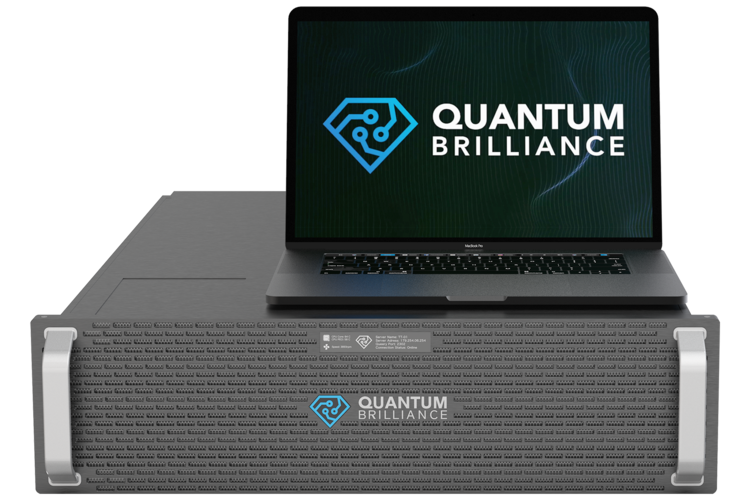
Diamonds are a qubit’s best friend, at least if Quantum Brilliance is to be believed. The company’s quantum hardware doesn’t require complex laser systems or absolute zero to function: it works at room temperature.
The technology exploits the properties of the nitrogen-vacancy centre, a point defect in the diamond lattice, to protect qubits against noise from thermal vibrations and magnetic impurities that could destabilise them.
The company’s quantum accelerator is small enough (the picture shows a comparison to a laptop) to be deployed on-site and because it operates at room temperature, customers can run their own quantum computer rather than relying on a cloud-based offering. They could also run in clusters or deployed at the edge (Quantum Brilliance envisages applications in robotic autonomous systems, medical imaging systems or satellites).
It installed the world’s first room temperature quantum computer at the Pawsey Supercomputing Research Centre in May 2022.
Quantum Brilliance is headquartered in Australia, but also has a base in Germany (where, last year, it joined a large government-backed research project led by Fraunhofer Institute for Applied Solid State Physics to develop a scalable diamond-based quantum computer).
Its founders hail from Australian National University and University of Osnabrück, but the startup also has partnerships with University of Stuttgart, La Trobe University and RMIT University. Investors include Main Sequence Ventures, which contributed to an $18m round three months ago.
Disclaimer: This list is for informational purposes only. It does not constitute investment advice.

Thierry Heles
Thierry Heles is editor-at-large of Global University Venturing and Global Corporate Venturing, and host of the Beyond the Breakthrough podcast.








